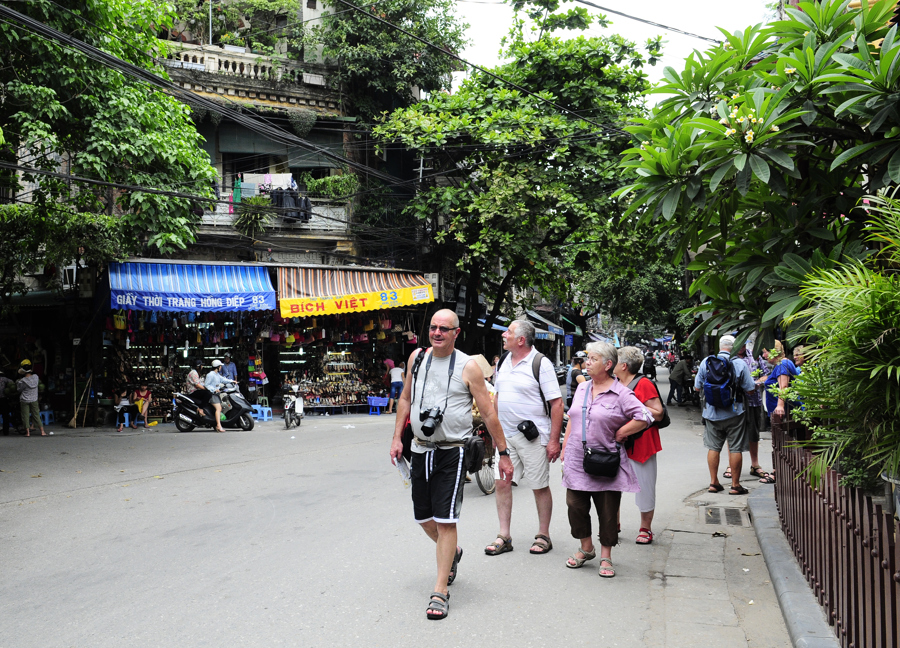Lawmakers agree to extend e-visa validity to 90 days
Extending the stay of foreign tourists with e-visa will boost Vietnam's tourism sector.
Vietnamese legislators on June 24 approved extending the validity of e-visas from 30 days to 90 days.
| Foreign visitors tour the Old Quarters in Hanoi. Photo: Hai Linh/The Hanoi Times |
The new rule will be applied to both single-entry and multiple-entry e-visas to meet the demand for entry into Vietnam among international tourists, professionals, and entrepreneurs.
The new regulation makes it easier to control immigration by providing for the online processing of visa applications.
These are among the amendments to the Law on Entry, Exit, Transit, and Residence of Foreigners. The amended law was approved by the National Assembly's deputies, with 95.15% out of 475 votes.
The Government will review and adjust the list of countries whose citizens are granted e-visa, as well as the list of international border crossings that allow e-visa holders to enter Vietnam.
Vietnam now issues single-entry e-visa to citizens of 80 countries, including Argentina, Austria, the United Arab Emirates, Canada, Germany, Cuba, the Republic of Korea, the United States, Russia, and Japan.
During the discussion, lawmakers said the extension will undoubtedly boost tourism, economic and investment activities in Vietnam.
Deputies also agreed to increase the length of visa-free stay from 15 days to 45 days, which is in line with the regional average.
According to the Central Committee of the National Assembly, the extension will help Vietnam attract more foreign tourists and become more competitive with other nations in the region.
The changes will take effect on August 15, 2023.
In 2019, Vietnam welcomed 19 million foreign visitors, about six million fewer than Thailand. After the Covid-19 pandemic, Vietnam received only about 60% of its targeted five million international visitors in 2022, while Thailand and Malaysia received 11 million and nine million guests, respectively.
In the first quarter of 2023, Vietnam welcomed only 3.7 million international guests, while the full-year target is eight million.













